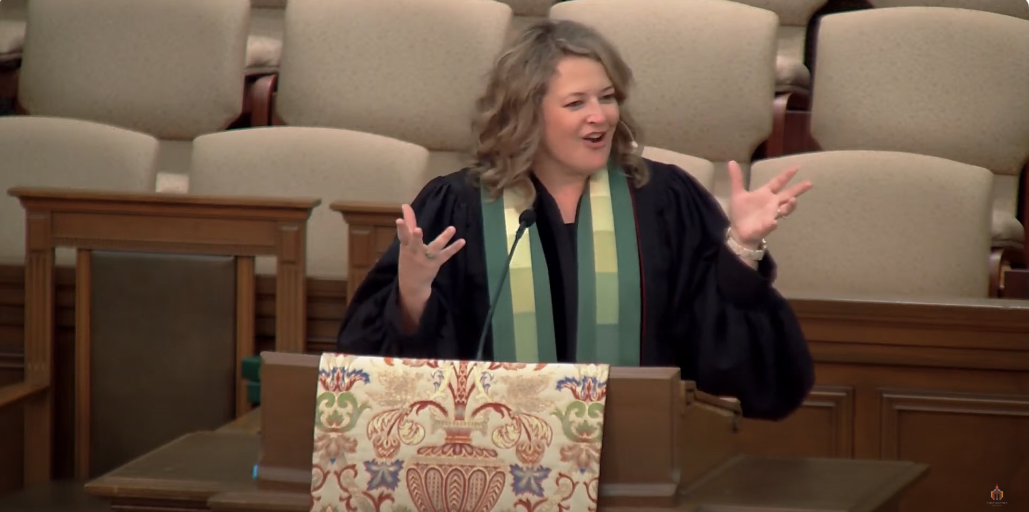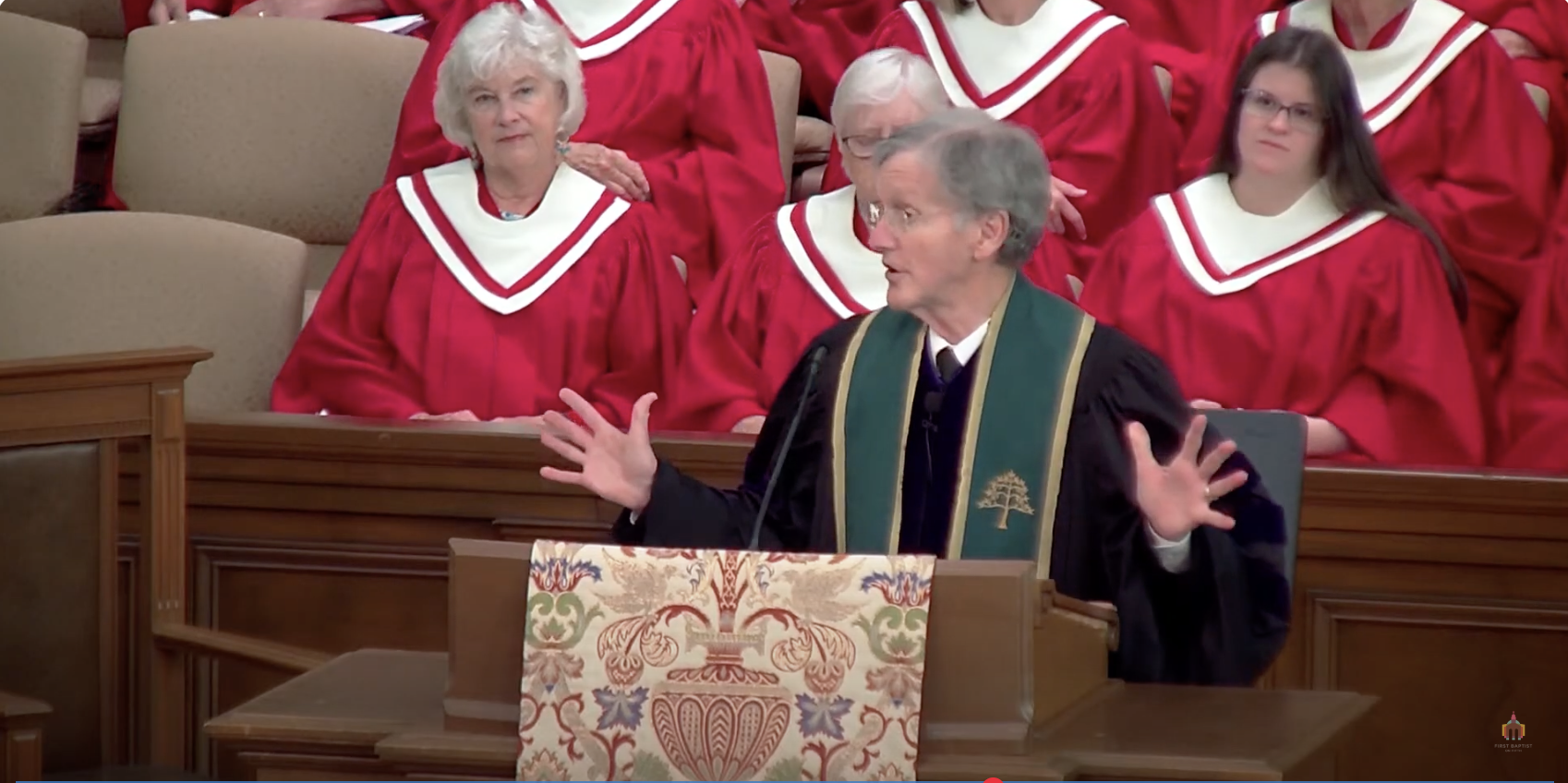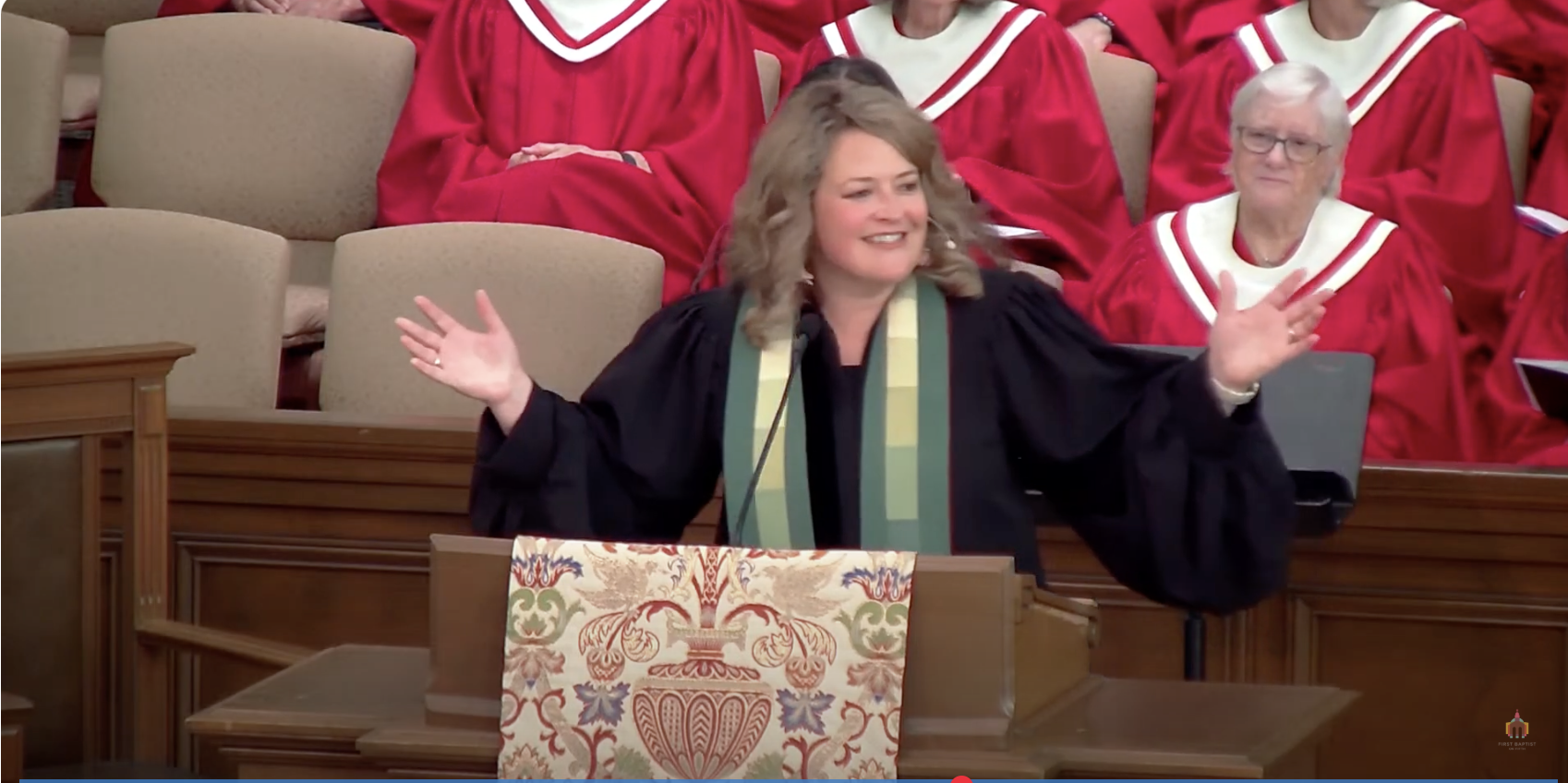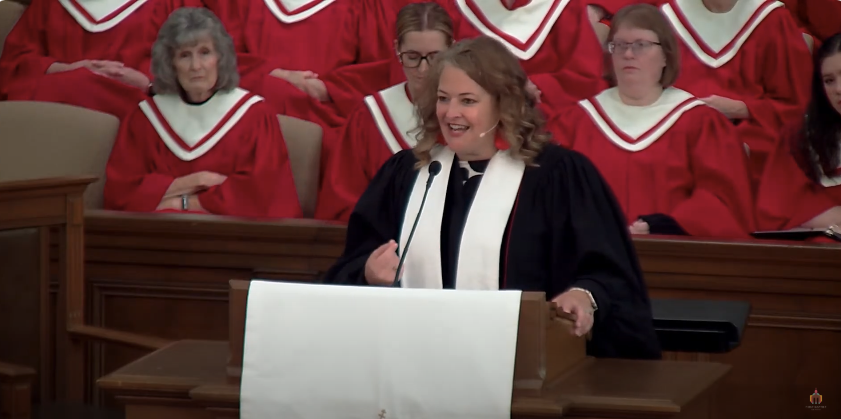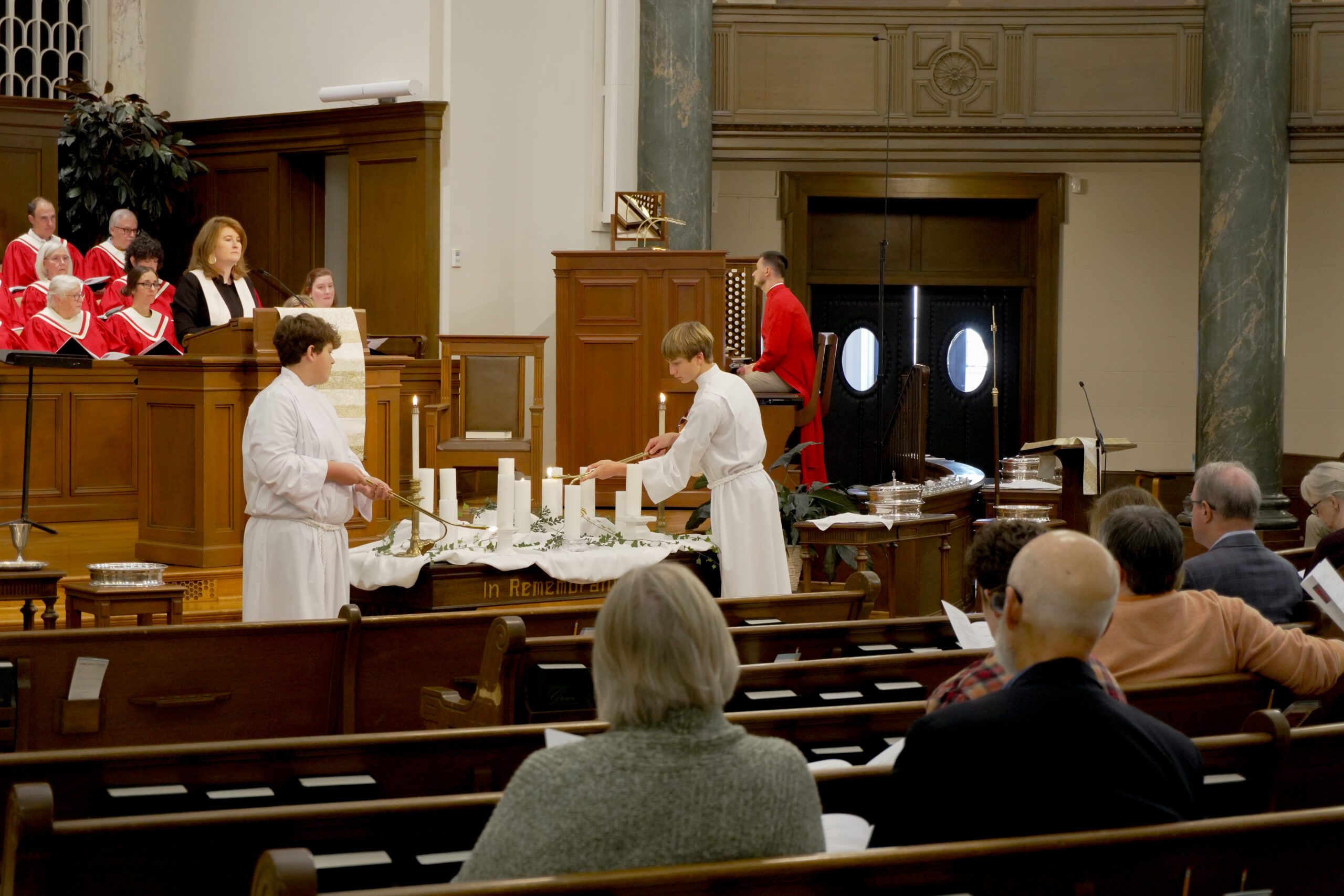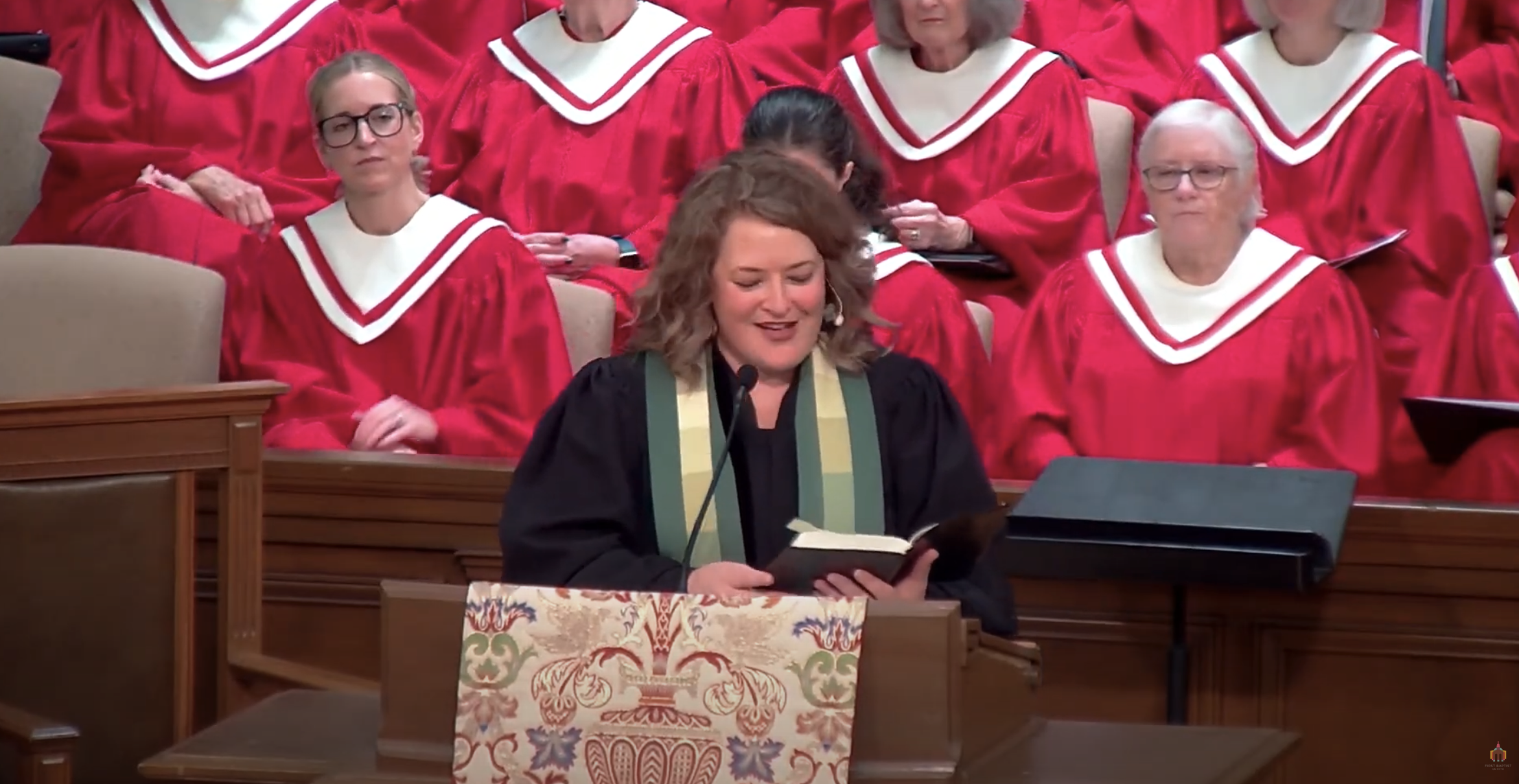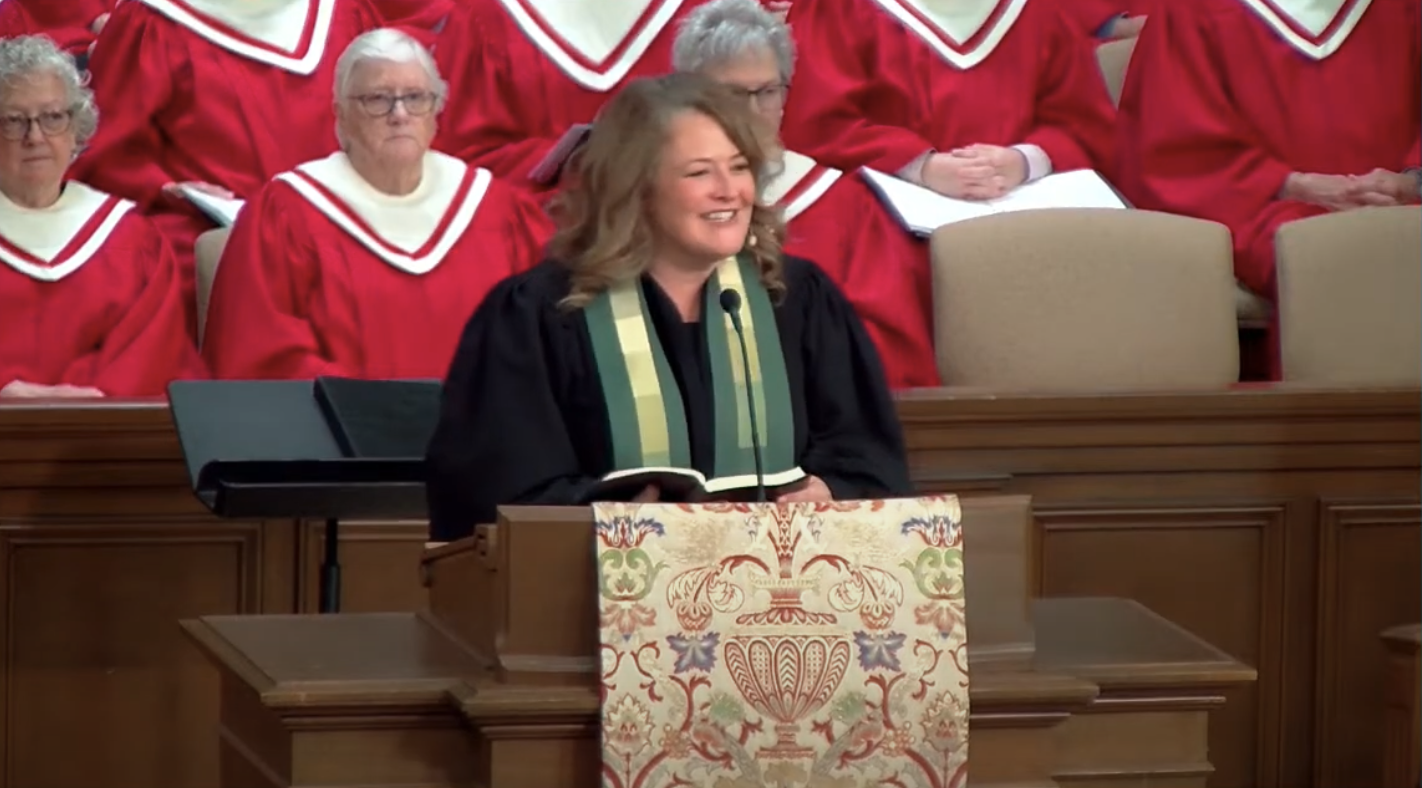I.Born a slave named Isabella in Ulster County, New York, around 1797, her young enslaved life was lived on her own. Sold for $150 at the age of 11, young Isabella moved around in the years ahead, becoming a favorite of her enslavers for her strength. Yet when Freedom Day came to New York in 1827, she wasted not a moment: reclaiming her life, reuniting with her son who had been separated from her and sold years prior, navigating her way through depression and poverty, finding her voice as a free woman. With her newfound voice, she felt called to find a new name. And with that new name came a new calling – to pilgrim through this land abiding with truth every step of the way. Sojourner Truth, people called her. She traveled all around the north and the east, her tall frame cutting a striking figure and her thick voice unmistakably urgent and clear. She told stories of slavery. She sang of her people’s despair. She proclaimed the good news of Jesus in her life – and did so with a clever wit.
One day after she was done speaking to a crowd, a white man came up to her, asking, “old woman, do you think your talk about slavery does any good? Do you suppose people care what you say? Why, I don’t care any more for your talk than I do for the bite of a flea.” “Perhaps not,” she replied, “but the Lord willing, I’ll keep you scratching.” Sojourner Truth spoke for freedom – for this country’s insufficient promise, for the church’s incomplete expression, for humankind’s inadequate articulation, a leader for both Black and white folks alike.
So it perhaps came as no surprise when a story like this one was told about Sojourner Truth. She was on a railroad car, traveling as she did from one town to another, and instead of sitting with her fellow Black citizens in the segregated cars, she took her seat in the white car with a white woman companion of hers. The conductor grabbed her and began to force her off the car, only to hear the protests of Sojourner’s white friend telling him to stop. “Does she belong to you?,” the conductor demanded gruffly. “She belongs to humanity,” Sojourner’s friend replied. And both were thrown off the train.1
II.This link between freedom and belonging is where we begin today, picking up from last week’s exploration of Paul’s letter to the church in Galatia. Let’s remember that Galatians captures Paul’s passionate advocacy to the early church around the inclusion of Gentiles, or non-Jews, as Gentile Christians, not asking Gentiles to become Jews first before following Jesus.
That’s Paul’s aim of this part of the letter: offering witness to the work that God does in Jesus. “Now before faith came,” Paul writes, “we were imprisoned and guarded under the law until faith would be revealed. Therefore the law was our disciplinarian – our “pedagogue,” our “tutor” – until Christ came, so that we might be justified by faith.”2 Centuries of Christian anti-semitism have rendered this claim of Paul as anti-law, suggesting that Jewish law is burdensome and outgrown like a childhood hobby.
But if we are to be true to God’s law of love and grace, there should be no hint of disdain toward different interpretations of the Christian story, no superiority of one Christian expression over another. “For in Christ Jesus,” Paul says, “you are all children of God through faith.” So if you’re baptized in Christ, clothe yourselves with Christ. This image of clothing ourselves with Christ will show up time and time again in letters to those early Christian communities. “Clothe yourselves in love,” from Colossians; “put on the Lord Jesus Christ,” in Romans; “clothe yourselves with the new self,” in Ephesians; “clothe yourselves with compassion and humility.”
Of this, 19th century Baptist minister Alexander MacLaren wrote: “it takes a lifetime to fathom Jesus; it takes a lifetime to appropriate Jesus, it takes a lifetime to be clothed with Jesus. And the question comes to each of us… are we daily, as sure as we put on our clothes in the morning, putting on Christ the Lord?”3
Now – we know that our clothing can define us, right? In a championship game, you don’t even need to ask a fan which team they’re supporting – just check their clothes. At a politician’s rally, or among a school lunchroom, or a public march, or in prison, or in a mall, one’s attire tells quite a story of how they define themselves, who they are, what they value, what they hope to communicate to the world about their identity. Our friend Chris Gambill has said meaningfully that “our culture fosters the lie that our greatest sense of place and purpose comes when we find an ideology with which to adhere, rather than a God and a community with which to belong.” And you only have to look at one’s outfit sometimes to know it.
But as Lauren Winner writes in her book, Wearing God, “Jesus is not the kind of clothing that creates social divisions but the kind of clothing that undoes them. Jesus is not a Vineyard Vines dress or a Barbour jacket; he is the school uniform that erases boundaries between people.”4
For indeed, as the cloak of Christ is put on, the other identities we wear with pride and possibility give way. God’s colorful human creations – different in ethnicities and economies, in skin tone and social status, in genders and backgrounds – are given a new way to live. Paul calls out three categories of difference here – “Jew or Greek,” meaning the differences of nation, culture, and religion, different ways to be Christian as Paul writes about through the whole letter; “slave or free,” meaning the differences of class and social status, differences that held up inequalities and injustices; “male and female,” meaning the differences of sex and gender that spread out across these binaries, differences that too often had been reduced to male dominance over any other. In each phrase – “no Jew or Greek, no slave or free, no male and female” – Paul reminds the church that the gospel of Christ – the good news of God-with-us – means that these distinctions, and all the hierarchies and dominations and inequalities and violence for all parties involved in keeping them, all of that gives way to the oneness in Christ.
Not collapsing into sameness, for those differences still reside clearly underneath those new garments of Christ. Not girding up our distinctiveness as a reason to be separate, for the image of God needs us all. And that this verse – Galatians 3:28 – was an ancient baptismal creed seems like icing on the cake. As newcomers came to faith and made the decision to follow Jesus, they didn’t just put on a white robe. They recited these words upon their baptism. “We all are one in Christ Jesus!” Because of God’s work in Jesus, reconciliation, connection, belonging matters most.
III.Last week, we had a Baptists 101 class in worship as we talked about the four fragile freedoms of Baptist identity. You remember them, right? (Bible freedom, soul freedom, church freedom, religious freedom!) As we talked about the faith in Christ and the freedoms we have to believe, we thought together about what these freedoms protects us from: from any individual or organizational hierarchy telling us how to interpret the Bible, from any interference in the daily decisions to follow Jesus, from any other church or denomination governing how our church follows the shape of our obedience to God, from a state-imposed religion or religious practice that we all must obey.
But when that kind of freedom goes untethered, well, it can get a little dicey. It reminds me of that story from Christmas of 1989, when Eastern Europe was unraveling from the inside out. The last communist president of Romania had just been overthrown and executed. Curious for the reaction among Romanians, a journalist from the BBC scoured those Romanian streets to find someone who spoke English well enough to be interviewed. He finally found someone, a woman, who summed up the Romanian sentiment and perhaps all of the human condition with her response: “we have freedom, but we don’t know what to do with it.”5
Friends, freedom of any kind doesn’t just release us from something, it releases us to something, for something, toward something. And the freedom we have in Christ, that freedom of our Baptist heritage to follow the conscience God has laid on our soul is empty if it doesn’t lead us deeper into our belonging to God and belonging to one another. Because you see, faith isn’t a solo enterprise. Church isn’t a solo work! Following Jesus isn’t a road walked alone! That’s why historically Baptists – despite their need to dissent and separate – have chosen to cooperate, to share in God’s work of love across our differences, because of our differences, not in spite of them! For Baptists at our best, belonging among the wideness of our diversity is a feature, not a bug.
As I’m looking around the room, I’m looking at some of the faces of folks who have lived much longer as Baptists than me, and who are painfully aware that Baptists don’t always rise to this highest ideal. Now, you’re more likely to find Baptists worrying about purity tests, conforming to beliefs and clothing themselves with the sameness that is, quite simply, fearful of the wide horizon of difference. Yet when we remember that these colorful distinctions which define us are superseded by the oneness in Christ that unites us, well, what better story to tell? So what would this kind of freedom to belong ask of us? What does it cost? What is it pointed toward?
IV.When we’re talking about belonging in the life of faith, I found it hard to choose just one quote for the cover of your worship guide, so let me read for us the second one from the wise and faithful Mother Teresa: “if we have no peace, it is because we have forgotten that we belong to each other.” When we forget that we belong to each other, we cry, “there is forever Jew or Greek, slave or free, male and female, for all of us are many, divided forever by our differences.” When we forget that we belong to each other, the children of Gaza become other people’s children. The displaced of Sudan become the problem for Sudan to fix. The hostages of Israel become innocent casualties of a horrific conflict in a region too far from our own. The citizens of Iran become collateral damage for the sake of power. When we forget that we belong to each other, we don’t just forget it on the other side of the world, we forget it right in our backyard too. We forget that the unhoused in downtown are our neighbors! The residents of Crystal Towers are our neighbors! This city in all her teeming, vibrant life – these are our neighbors! How quickly we forget.
In these caustically-divided times, one might expect this kind of behavior from people who make their actual living on keeping us angry and afraid. One might expect this from our partisan hacks or our defense hawks, from the endless stream of people who always want to talk about what divides us. But friends, in the words of Paul, “but now that faith has come, we are no longer subject to a disciplinarian, for in Christ Jesus, you are all children of God through faith. As many of you as were baptized into Christ have clothed yourselves with Christ. All the ways you could divide and distance and silo and section yourselves off – no! No longer! Do that no longer, for all of you are one in Christ Jesus.” Jesus has already done this work; it is the reality in which we live.
As followers of Jesus who tore down the dividing walls of hostilities between us and moved us beyond the barriers of exclusion into the embrace of belonging, we must not forget! We must not forget that we belong to each other. We must not forget that there is no such thing as other people’s children. We must not forget that our Baptist freedoms aren’t just freedom from but freedom for. We must not forget that this freedom is at its richest, fullest, and most faithful when exercised and pointed toward belonging: belonging to God, belonging to one another.
V.Let me offer one final way that our church practices this, in part to encourage us in our living outside these walls. In her book Christianity After Religion, Diana Butler Bass describes how, in the latter half of the 20th century, folks would find their way to a church and become a member. Her research showed that there were three questions that punctuated the beginning of that relationship, in this order: “what should I believe?” (meaning, what statements or creeds or pledges describe by sense of belief or what I trust), “How should I behave?” (meaning, how should I act out what I believe) and “Where do I belong?” (meaning, where are my people, where do I know that I am seen and heard and loved). “Believe – behave – belong” has been the sequence and order for so much of Christianity in most of our lifetimes.6
And yet, as the fabric of our common life has frayed, far too many of our churches have become centers of the individualism and ideological purity and fear we see everywhere we turn. For many churches, Believe – Behave – Belong has sharpened into Agree (or, don’t dare stray from the party line on an increasingly long list of convictions), Assimilate (or, fully sink into this way of thinking and being), and Anger (or, then get mad about it!).
You might say that the church has had it wrong for far too long. Yet all throughout scripture – particularly here in Galatians – nowhere do we hear an exhortation to all think the same or believe the same in order to follow Jesus, lest one be excluded. Rather, we’re given a full-throated imagination for what the body of Christ looks like where and when we all belong – each part needed for the sake of the whole. Our church tries to practice this, but what if all our churches, what if all who follow Jesus, instead of practicing believe – behave – belong, practiced belong – believe – become?With every day, I think we’re becoming that kind of church, the belonging kind of church, offering belonging as part of our Baptist witness in this world, because of the unconditional belonging we receive in Jesus Christ. For nowhere do we find belonging more clearly than with him: no outfit we wear, no bar we frequent, no group of friends we have, no club we’re part of, no ideology that stirs our passions, no political party to which we commit our dollars and our votes, no neighborhood in which we live. No! So friends, don’t forget it! We are all one in Christ Jesus! You belong to Christ. You belong to humanity. You belong to each other. For that we say thanks be to God! Amen!


